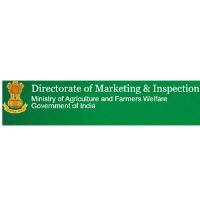What is AGMARK?
AGMARK is a certification mark for agricultural produce, assuring that they conform to a grading standard notified by the Directorate of Marketing & Inspection (DMI), Department of Agriculture, Cooperation and Farmers Welfare, Ministry of Agriculture & Farmers Welfare under Agricultural Produce (Grading Marking) Act, 1937.
These standards differentiate between quality and 2-3 grades are prescribed for each commodity. To date, grade standards for 222 agricultural commodities have been notified. These include fruits, vegetables, cereals, pulses, oilseeds, vegetable oils, ghee, spices, honey, creamery butter, wheat, atta, besan, etc.
While framing the standards, the existing standards in The Food Safety and Standards Act, 2006, Codex Alimentarius Commission, International Organization for Standardization, etc. are considered. Trade Associations, Research Institutions, etc. are also consulted.
Why this License is Required?
For Blended Edible Vegetable Oils and Fat Spread certification under AGMARK is mandatory as per provisions in The Food Safety and Standards Act and regulations, 2006. European Commission has approved the procedure of pre-shipment inspection under Agmark for exports of fruits and vegetables to EU countries.
Who can get a AGMARK License?
Pulses
Whole spices
Vegetable oils
Wheat Products
Milk products
Honey
Rice
Tapioca Sago
Seedless tamarind
Besan (Gram flour)
Document Required for AGMARK License
- Self-attested copies of the proprietorship declaration/Partnership deed/ Memorandum and Articles of Association/Bye Laws of Society etc.
- Blue print or neatly drawn sketch of the premises showing all dimensions duly signed by the authorized person of the firm.
- Details of the TBLs proposed to be applied on the Graded Packages (Trademark Registration Certificate copy or Application copy).
- Copy of the consent letter from the legal owner of the premises, in case, the premises is not owned by the applicant and taken on rent/lease.
- Specimen copy of the proposed Trade Brand Label of each commodity.
- Medical fitness certificates issued by the Registered Medical Practitioner certifying that the workers engaged in the handling of the product in the various operation, are free from communicable and contagious diseases.
- In case, packer establishes his own laboratory for grading
- Documents for Approved Chemists from Agmark Departments.
- Details of Instruments, Details of Glass Apparatus, Details of Chemicals
- Consent letter of the approved laboratory in case, packer desires to grade the product through State Grading Laboratory/ Commercial Laboratory/Association or Cooperative Laboratory in the prescribed Form A-3.
- Copy of Registration/ License Certificate issued under FSS Act, 2006, in case of food commodities.
- Copy of the food grain storage license for Wheat-atta, Suji, Maida, Besan, other Cereals and Pulses, etc.
- Copy of license from Controller of the relevant Drugs Department of the state Government, in case C.A. for grading & marking of medicinal grade castor oil.
Role of Shamkris and Process of AGMARK License
Shamkris adopts a results-oriented approach to compliance with mandatory licence requirements in the organization. A simple and guidance methodology help organisation to achieve licence in a timely manner and cost-effective. Shamkris support 100% in advisory, Guidance, Compliance with respect to license requirements to obtain approval.
The License process described below:
- Advisory for the document required
- Preparation of documents as per application & list of documents.
- Application File
- Inspection by the department if required
- Liason department
- License issued
- Yearly Compliance if Applicable
- Renewal when due

